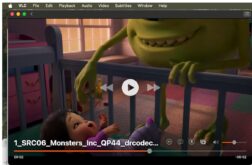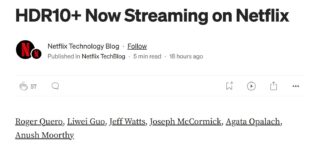I recently received the following message from a colleague, a respected IP attorney, on LinkedIn.
Hi Jan, hope all’s well. What do you make of Google joining HEVC Advance’s pool (now Access Advance)? Talking to some relevant players, I think it’s a prelude to Chrome supporting HEVC. Do you think it has any implications for AV2 or VVC? Thanks, and hope you have a good holiday.
My colleague was referencing a news announcement you can read here stating that:
Access Advance (“Advance”), an independent licensing administrator, today announced the addition of over 30 Licensees in recent months, including, ARRIS Solutions (a leading set-top box provider), DJI (a leading drone provider), Google (a leading internet-related services and products provider), Hanwha Techwin (a leading surveillance camera provider), OPPO (a leading global smart device brand), Panasonic (a leading multi-national electronics provider), and Panasonic i-PRO Sensing Solutions (a leading security/surveillance solutions and device provider).
Advance also recently welcomed Digital Insights, Google, and IBEX PT Holdings to the HEVC Advance Patent Pool as Licensors. The HEVC Advance Patent Pool now contains over 13,000 HEVC/H.265 essential patents, and of those patents, almost 11,000 are now available in a pool license exclusively through the HEVC Advance Patent Pool.
Here’s what I responded:
Google has HEVC in Android and some consumer products like Chromecast (and Pixel – see comment below) so it’s not a surprise that they signed a license agreement.
https://developers.google.com/cast/docs/media
If they own IP used in HEVC it makes sense for them to monetize it by joining a pool.
I have no idea what Google is planning to do with Chrome, but the lack of browser support for HEVC is one of AV1’s strongest competitive advantage over HEVC. If Google added HEVC to Chrome it would really hurt the AV1 effort and make them seem like hypocrites. Seems like a long shot to me.
So, I just wanted to put this news out there and learn if anyone had heard anything about Chrome supporting HEVC (or had any other thoughts about the above).
 Streaming Learning Center Where Streaming Professionals Learn to Excel
Streaming Learning Center Where Streaming Professionals Learn to Excel










With respect to the real-time path, chrome has added support for HEVC RTP Payload roughly a year ago, at the request of several external players likely including Apple, INTEL, and CoSMo/Millicast.
The design of the chrome WebRTC implementation allows to plug in any encoder/decoder externally, as long as the RTP payload is supported. INTEL, whose hardware supports HEVC enc/dec by default, already had a full implementation in their Open Webrtc Toolkit, from which Apple derived their own Safari implementation. Currently, safari Tech preview has CPU and GPU HW accelerated support for HEVC in webrtc. Their more limited, and controlled hardware landscape makes it somewhat easier for them.
It is possible that Google decide to support HEVC wherever HW support is present, without software fallback, just like they eventually did for H264 on android.
it is also possible that they only do it for native apps, by injecting the support as an Encoder, respectively decoder, factory (google duo has a lot of extensions that are not in chrome).
I believe the chances were small, as it would have happened already otherwise, but a change in the licensing landscape could help making it happen. Technically, there is but little left to do, back-porting the patches from Apple, or INTEL would be enough.
I agree with you though, with respect to not only their engagement on AV1 and 2, but also the push behind scalable / layered codecs in general (SVC), it does not seem to make sense at this stage.
Google directly sells the Pixel line of Chromebooks and phones, as well as the Chromecast. They would have a liability for intellectual property in that respect irrespective of who actually manufactured them (LG, Foxconn, etc?) because Google is the one “introducing” the product on to the market which is often where the liability lays.
Good one – thanks Bob – added a note to the main article.